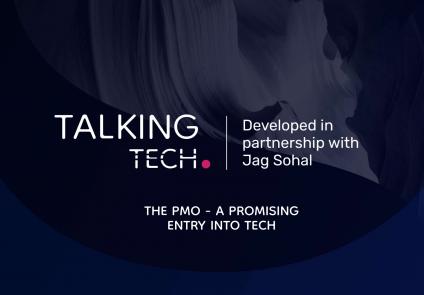Whether you’re a techie looking for a more person-focused role, or just dipping your toes into the waters of tech for the first time... Learn what the Project Management Office is and the roles it can offer you.
What does PMO mean?
The Project Management Office is a department dedicated to overseeing project management. “Great, more rules and restrictions”, you might say. We disagree. The PMO is the central hub for governance, alignment, and change delivery.
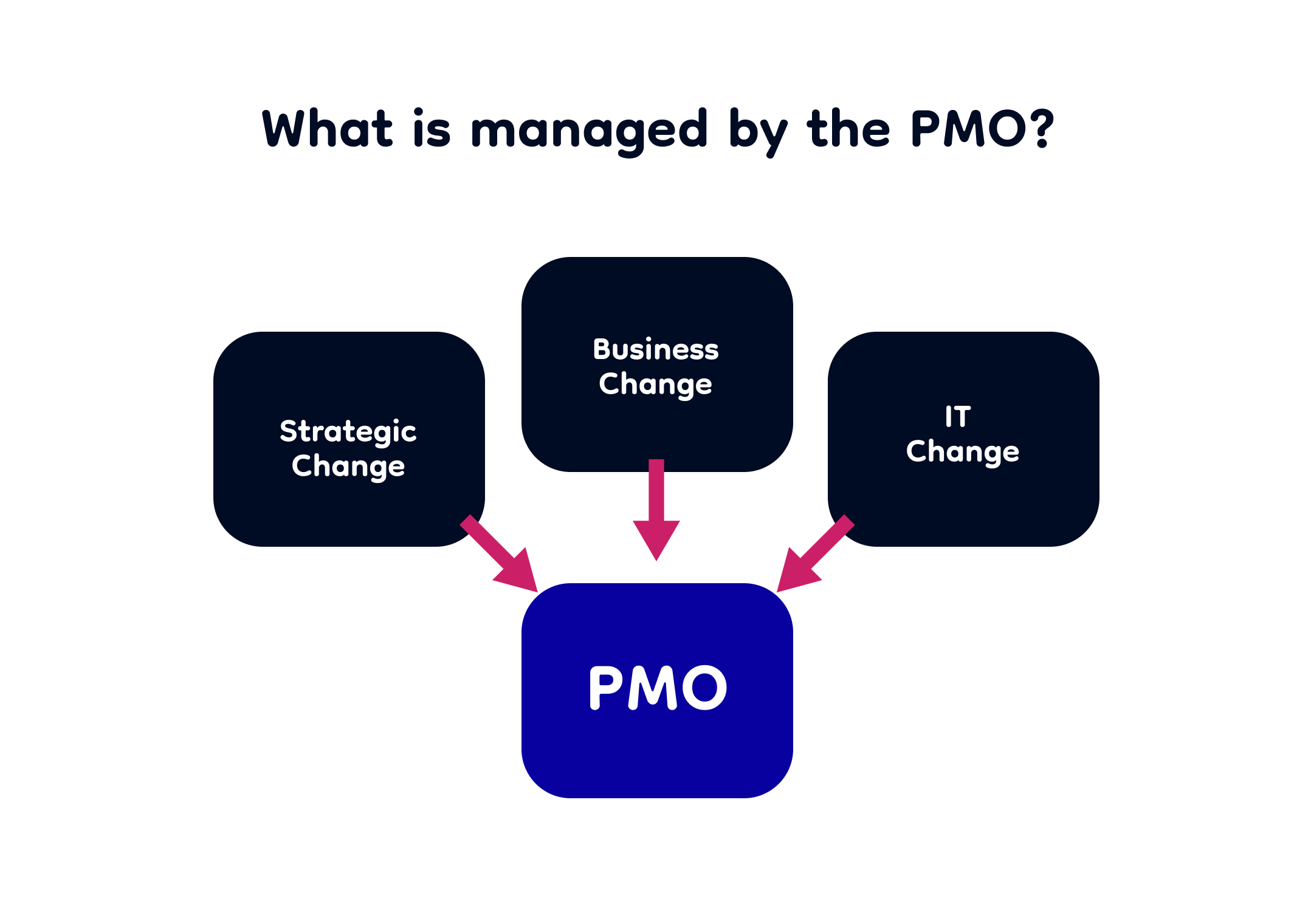
Where does the PMO sit in an organisation?
This varies. In some organisations, Project Managers report up to the PMO. In others, the PMO is a separate department; typically, within IT and Change. There is success in both models.
What is the PMO in charge of?
Put simply, this depends! The organisational goals, size, and type of work all feed into what a PMO could be responsible for.
It has oversight across a variety of projects. Crucially, the PMO makes sure the business has the “right mix” of changes to reach company goals.
We asked PMO professionals in the banking sector what their view of the PMO remit is. Answers were varied, but these are the top points that came up over and over again:
-
Provide the right support and coaching
-
Establish the right tools and templates to ensure quality of delivery
-
Manage resource and financial planning
-
Cover Risks, Issues & Controls tracking, reporting, or escalating
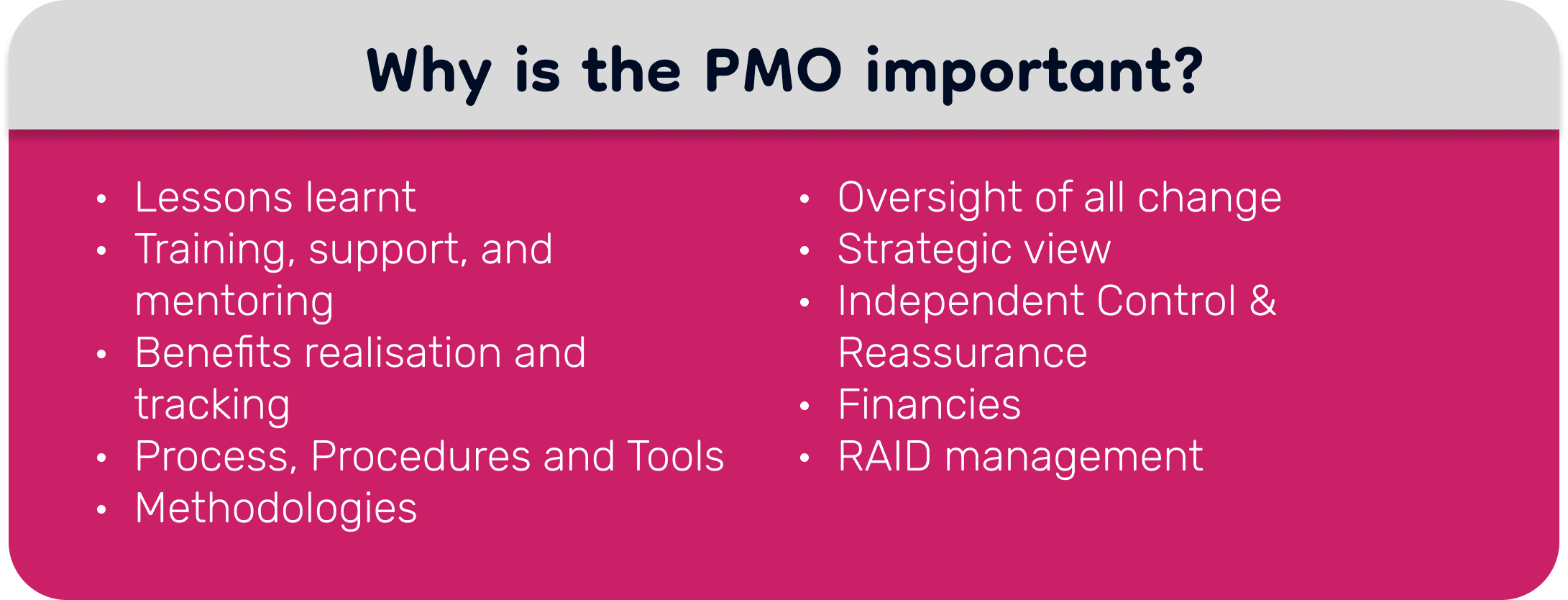
What kind of job is in PMO?
The attractive thing about PMO is that there are roles for every level of experience. As a young professional, this is a brilliant place to start your career. It gives you insight across the whole business and helps you pick up highly transferrable skills.
What makes a good PMO?
“PMOs are there to ensure project and program success, and that's critical because organizations deliver value through projects and programs."
Brian Weiss, vice president, practitioner career development of the Project Management Institute.
A good PMO manages changes of scale and complexity, adding a consistency to ‘how things are done’.
In regulated sectors such as government or finance, the PMO can act as a source of compliance monitoring and management. There are often high stakes for executing project portfolios in these sectors, and more hurdles due to sensitive data, privacy, and compliance considerations.
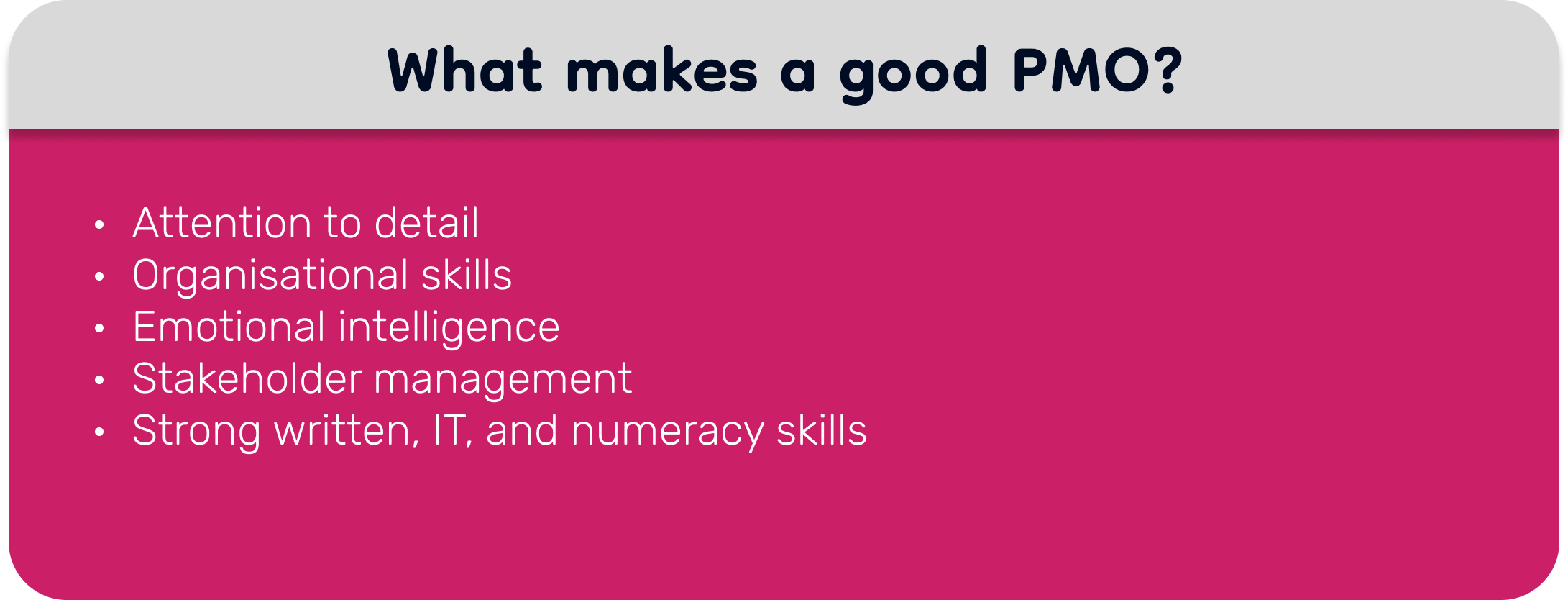
What qualifications do I need to be a PMO?
There are no formal higher education courses aimed at PMO roles, because it’s such an evolving entity with innate variety and requirements. This really opens the door to entry-level candidates – PMOs need more junior roles to function!
Because the PMO offers such a ‘helicopter view’ of the business, you benefit from constant exposure to many areas of the business.
Which type of person makes a great PMO?
PMO roles aren’t technical. They rely heavily on soft skills, but the ideal candidate is someone who simply enjoys helping others. A lot of your day will be spent managing and maintaining relationships, and making life easier for other teams.
How can I get into PMO?
Understanding what PMO roles want, and your future aspirations, is the first step. Imagine you’re speaking to a recruiter, looking for a role in a PMO. What could you say?
-
I love helping people
-
I want to learn about business strategy and processes, even though I don’t have much experience in this area
-
I’m looking for a role where I can learn daily and make progression as I increase my knowledge
-
I’m not sure which role I want to go into in tech. I want to start with a role I can get exposure to lots of areas of the business.
-
I have great people skills
-
I like consistency in my job
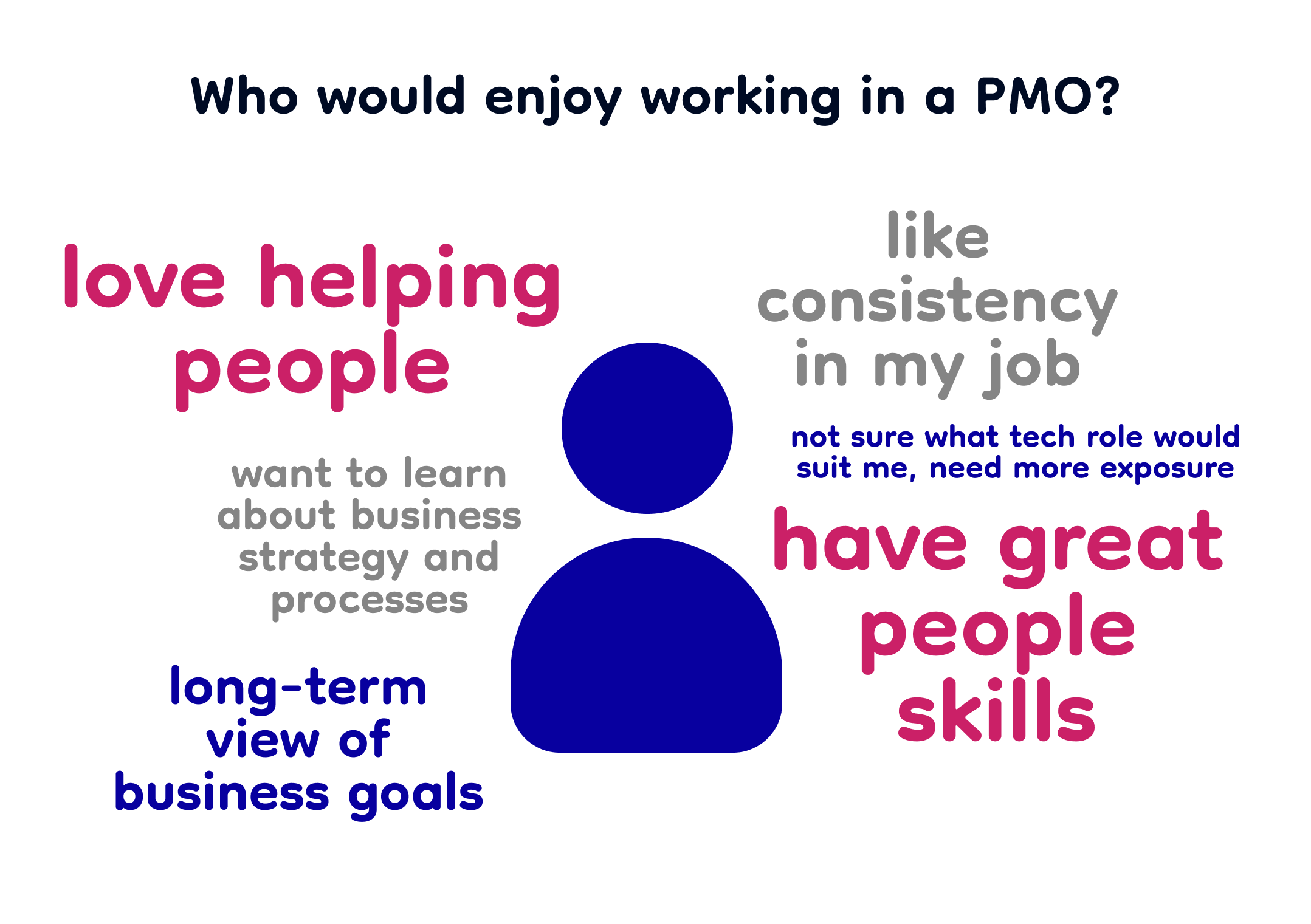
Where could I go from PMO?
Within a PMO, progression is always an option. As you build your skills and exposure to the business at large, you could find yourself increasing in seniority within the PMO.
Or, you could use what you’ve learned to step directly into Project Management, or even sideways into Business Relationship Management. PMO staff tend to work really closely with BRMs – think of them as allies with very similar goals. BRMs generate new demand, which the PMO helps to shape through cost estimates, resourcing, and portfolio mixing.
The skillsets needed for jobs like this really complement what you’ll have learned in the PMO.
What is a PMO vs PM?
PMO staff are the honesty brokers for PMs – projects can get political and tricky. The PMO sticks to the facts, and supports effective delivery of projects, with a positive outcome.
Project Managers work on managing the timelines and budgets of projects to ensure delivery. Supported by the PMO, they are the ‘conductors’ of the business world.
Where can I learn more like this?
As part of our focus on encouraging Early Entry into tech and demystifying alternative routes into the industry, we've partnered with Jag Sohal. Jag is on a mission to help those in their early careers make a positive start in the IT profession. She's a myth buster keen to let people know that there’s many entry paths into IT and the profession offers a whole host of opportunity, impacting all sectors.
Watch: The Project Management Office | BCS Birmingham Branch – Jag Sohal, Tom Gilbert, and Sally Paul
Connect: Find Jag on LinkedIn here



